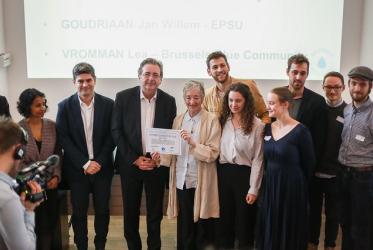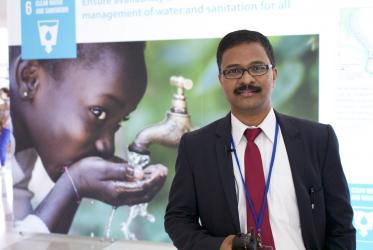Displaying 1 - 11 of 11
11 - 13 February 2021
Churches should use their voice on climate change
26 February 2020
WCC joins gathering of Blue Communities in Brussels
06 December 2019
WCC well-represented in Religions for Peace leadership
07 October 2019
G7 must address famine
22 May 2017
From the occupied Palestinian territories to the European Union
09 October 2013






